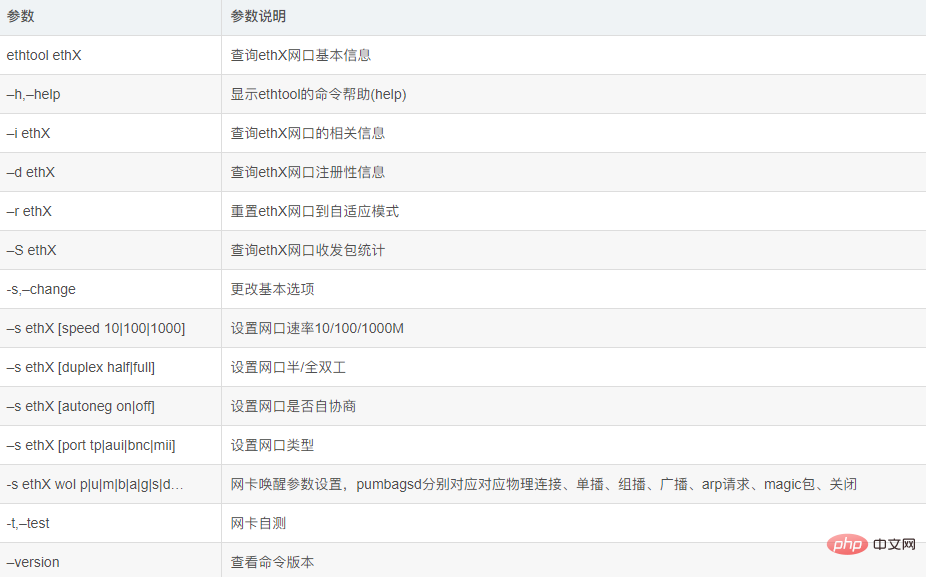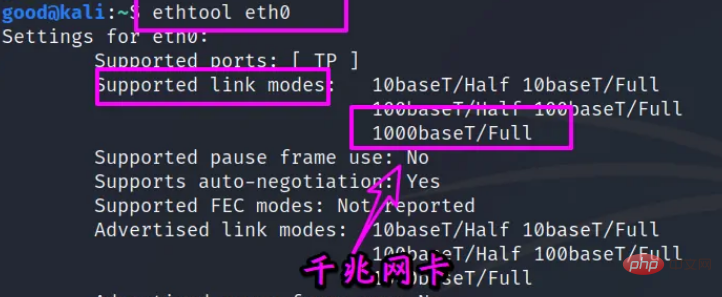
In Linux, you can use the ethtool command to determine whether the network is 100M or 1000M. This command is used to query and control network device drivers and hardware settings, that is, to query and set network card parameters. The syntax is "ethtool [Parameter] [Parameter value] Network card name".

#The operating environment of this tutorial: linux7.3 system, Dell G3 computer.
Use the ethtool command.
The ethtool command is used to query and control network device drivers and hardware settings, especially the name of the wired Ethernet device, devname network card. The network card is like a port of the switch. For normal use, we only configure the network card IP address and other information. We do not care about the network card's speed, duplex mode, etc.
Through the ethtool command, we can configure these parameters just like configuring the switch network card. This is the charm of this command.
The syntax is as follows:
ethtool [参数] [参数值] 网卡名称
ethtool is a command used to query and set network card parameters under Linux.
Parameter Description
There are many parameters for ethtool. Here we only list the main and commonly used ones for introduction. More detailed instructions can be obtained through –help. In addition, although the ethtool command supports many functions, some parameter commands require network card support.

Examples are as follows:

Examples:
[root@hvrhub ~]# ethtool eth0 settings for eth0: supported ports: [ tp mii ] supported link modes: 10baset/half 10baset/full 100baset/half 100baset/full supports auto-negotiation: yes advertised link modes: 10baset/half 10baset/full 100baset/half 100baset/full advertised auto-negotiation: yes speed: 100mb/s ------------------------------------>网卡速度 duplex: full port: mii phyad: 0 transceiver: internal auto-negotiation: on supports wake-on: pumbg wake-on: g current message level: 0x00000033 (51) link detected: yes
Recommended learning:Linux video Tutorial
The above is the detailed content of How to determine whether the network is 100M or Gigabit in Linux. For more information, please follow other related articles on the PHP Chinese website!